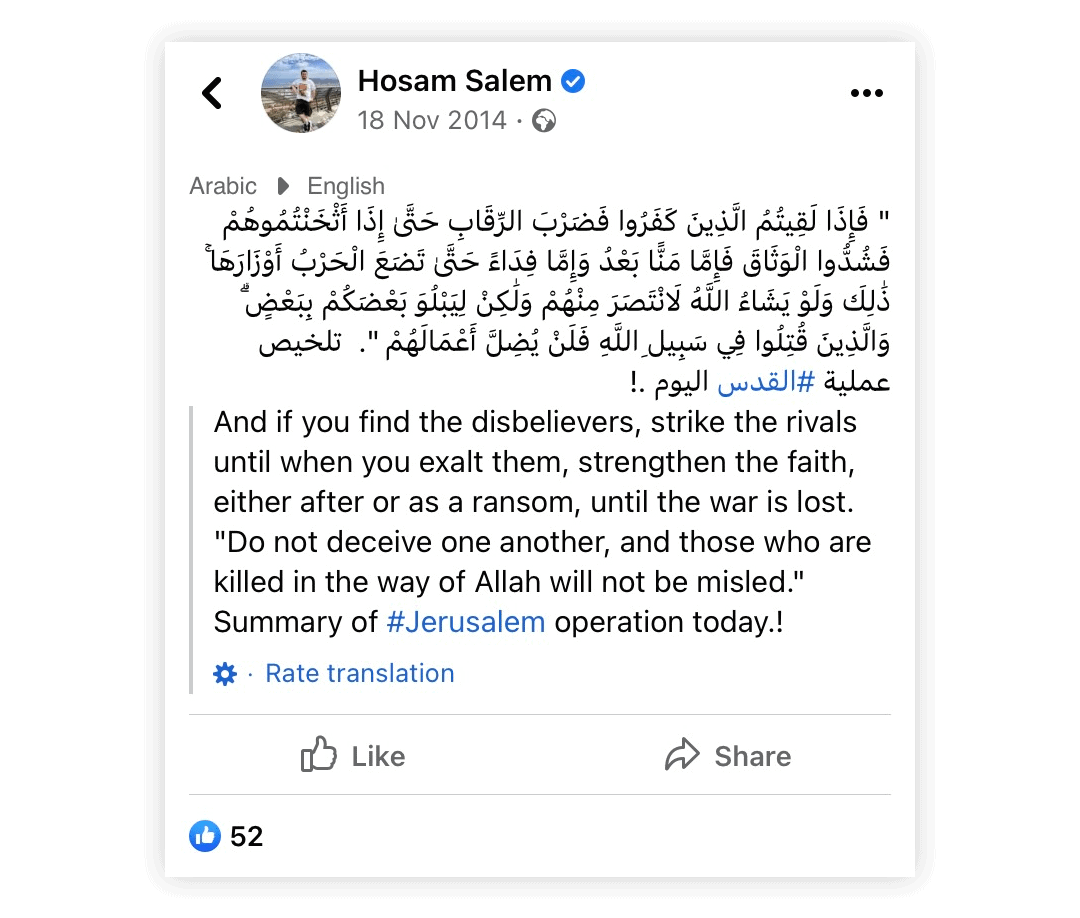A New Strategic Landscape in the Middle East
Arab-Israeli relations are a source of good news these days. The conflict between the Jewish state and its radical enemies, Palestinians and others, is far from over, and the threat of the Iranian revolutionary regime may be greater than ever. However, a new strategic alignment promises a better chance for regional states to isolate and stand up to the radicals who continue to threaten the existing order. The old structure of the Arab-Israel conflict that defined the Middle East for generations is now being replaced by a strengthening Arab-Israeli coalition against Iran and its radical Arab proxies.IDF arrests 3,000 Palestinians, thwarts 500 attacks in past 6 months
The erosion and ultimately the abolition of aggressive regional solidarity targeting the Jewish state has been the supreme objective of Israel's regional strategy since its inception. Breaking up regional solidarity is an indispensable precondition to any progress toward peace. Arab states would consider accepting Israel only following a painful recognition of the failure of the attempt to erase it at an acceptable cost.
The profound change in the strategic landscape of the Middle East in the recent decade may be characterized by four pillars: the magnitude of the Iranian regional threat, the inability of Arab states to stand up to that threat by themselves, the questionable steadfastness of American support, and the proven capacity and dependability of Israel.
Unlike most European and American officials, Arabs fully realize the magnitude of the Iranian determination to hegemonize the Middle East at their expense and the effectiveness of Iranian brutality and sophistication in the pursuit of that objective. Watching the impact of the Iranian takeovers in Lebanon, Syria, Iraq, and Yemen and its subversion in their own countries, they know they are in desperate need of external assistance to survive.
The most vulnerable Arab states turned to the only power that fully appreciates the magnitude of the Iranian threat and is capable and determined to provide a forceful response. Israel has been engaged for more than half a decade in a wide-scale preventive war in Syria and western Iraq to thwart the Iranian takeover where it threatens Israel most acutely. The historic all-Arab coalition against Israel has been replaced by a de facto Arab-Israeli coalition against the radical forces that threaten them both.
The IDF’s ongoing Operation Break the Wave in the West Bank has seen thousands of troops and reservists crack down on Palestinian terrorism, arresting over 3,000 suspects and thwarting over 500 terror attacks.Israel Upgrading Security Barrier in Northern West Bank
The operation began in late March after a series of terror attacks in Israeli cities left 20 people dead. Israeli security forces, including the IDF, Shin Bet (Israel Security Agency) and Israel Police have been carrying out raids during day and night against Palestinians suspected of terrorism.
For more than six months, some 25 regular battalions have been deployed to the West Bank along with an additional 84 of reservists deployed to the area by the end of next year.
The large number of troops comes as the level of violence in the West Bank continues to remain unusually high, with massive amounts of gunfire directed against troops carrying out operational missions as well as against Israeli civilians.
The past year has seen a marked increase in terrorism, with 281 serious terror attacks by Palestinians: 239 against soldiers and 42 against civilians.
There were also a total of 8,483 violent incidents by Palestinians such as riots or stone throwings, about 40% of them against Israeli civilians and 60% against IDF troops. The number marked a significant rise of almost 20% from the 7,039 attacks last year.
On Nov. 14, Israeli Defense Minister Benny Gantz approved plans to upgrade a section of the West Bank security barrier after a series of terror attacks were committed by Palestinians who illegally entered Israel.
A tall fence, similar to those on the borders with Egypt and Gaza, will replace a 50-km. stretch of fencing from the Te'enim checkpoint near Avnei Hefetz to Oranit in the northwestern West Bank.
In the summer, construction began on a 9-meter tall concrete wall to replace another 50-km. stretch of fencing in the northern West Bank from Salem to the Te'enim checkpoint that was built 20 years ago.
Both upgraded sections will be equipped with surveillance cameras and sensors.
In July, the IDF began to strengthen defenses along the existing security fence in the Judean Desert in the southern West Bank, digging a deep trench over 20 km. to prevent the passage of people and vehicles.
Many credit the West Bank security barrier with helping to end the Second Intifada (2000-2005), though only 62% of the barrier was completed.












































